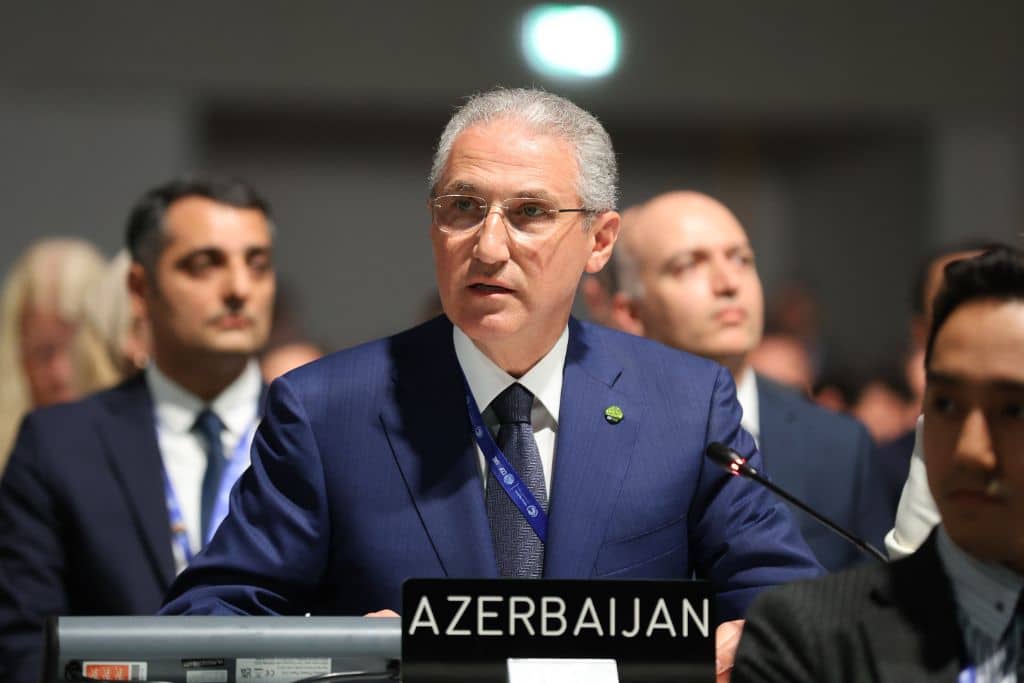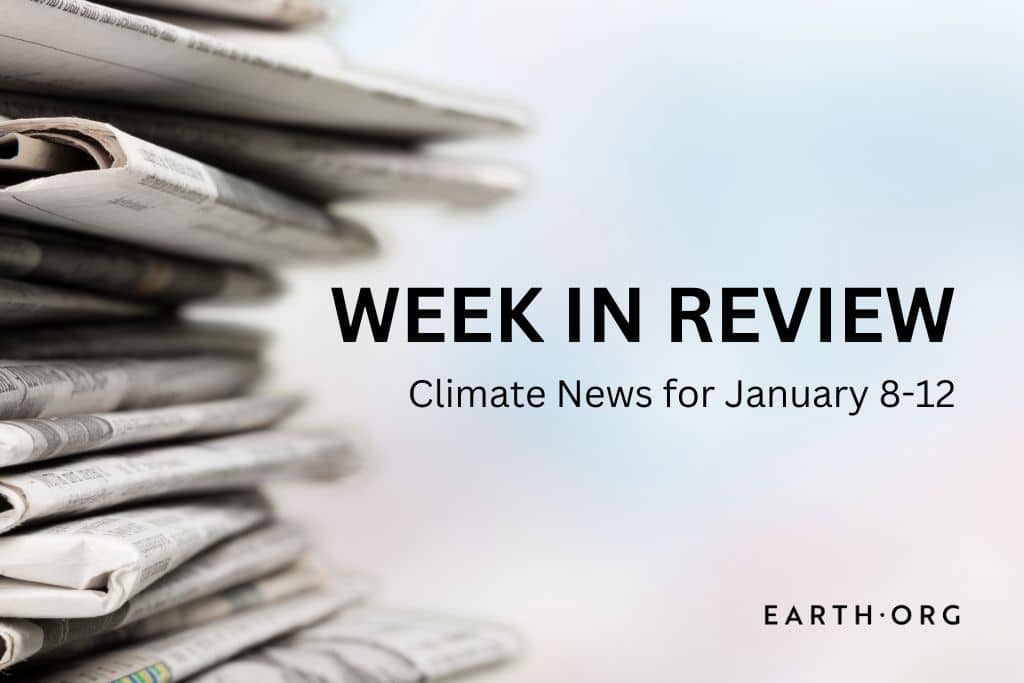This weekly round-up brings you key climate news from the past seven days, including a controversial vote in Norway and the appointment of an ex-oil executive as COP29 chief.
—
1. Norway Votes in Favour of Seabed Mining Exploration
In a highly controversial move, Norway’s parliament on Tuesday approved a bill to kickstart seabed exploration for deep-sea mining.
The vote effectively allows explorations across more than 108,000 square miles (280,000 sq km) of seabed in Arctic waters, an area between Norway and Greenland bigger than the UK, and gives companies the green light to apply for permits to drill.
Deep-sea mining refers to extracting metals and minerals from the deep ocean floor at depths ranging from 200 to over 6,000 metres. The seafloor is rich with high-value mineral deposits, including precious metals (gold, silver), metal ores (manganese, nickel, cobalt, copper), and rare earth elements used in electronics.
While developing these resources could provide essential materials for the green energy transition, the decision prompted outcries from scientists and environmental groups, who argue that the benefits of deep-sea mining do not outweigh the environmental impacts on marine ecosystems and say it is “a huge step in the wrong direction.”
Read more here.
2. Azerbaijan Appoints Ecology Minister and Ex-Oil Executive to Lead COP29

Before his appointment as minister of ecology and natural resources in 2018, Mukhtar Babayev, a member of the ruling right-wing New Azerbaijan Party, worked at the state-owned oil and gas company Socar for more than two decades, during which he also briefly served as the company’s vice-president for ecology.
The decision was announced last week in a post on the COP28 United Arab Emirates Presidency’s X (formerly Twitter) account. “We look forward to working alongside the COP29 and COP30 Presidencies, and the UNFCCC to build on the transformative and historic success of COP28 and keep 1.5°C within reach,” the post read.
Read more here.
3. China-Driven Expansion of Renewable Energy in 2023 Paves the Way to Achieving COP28 Tripling Goal, IEA Says
Renewable energy capacity grew by a staggering 50% last year compared to 2022, with China accounting for the largest share globally, according to the International Energy Agency (IEA).
In its annual market report published yesterday, the Paris-based agency revealed that the world’s capacity to generate renewable power has expanded at an unprecedented pace, presenting a real opportunity to triple global capacity by 2030, a target set at last month’s UN climate summit COP28 in Dubai.
According to the IEA, the path to tripling renewables varies greatly across countries, regions, and technologies. While advanced and large emerging economies face challenges such as policy uncertainties, inadequate investment in grid infrastructure, and administrative barriers, developing economies are battling with insufficient finance, weak governance and regulatory frameworks, both of which are crucial to attract investments and establish renewable targets and policies.
Read more here.
4. One Liter of Bottled Water Contains About 240,000 Plastic Particles, New Study Finds
There are about a quarter of a million plastic particles in the average one-liter water bottle, up to 100 times more than previously estimated, new research has found.
The trailblazing study, published Monday in the scientific journal Proceedings of the National Academy of Sciences (PNAS), looked at five different water bottles from three popular brands, which researchers declined to identify. They found, on average, 240,000 particles from seven different types of plastic, mostly in the form of nanoplastics.
While previous research has focused on well-known microplastics, fragments of plastic smaller than 5mm and larger than 1 micron (1/1000th of a millimeter) in length, nanoplastics, which measure less than one micron and are no wider than a human hair, are believed to be even more toxic since their smaller size makes it easier for them to enter human organs and bloodstream.
Read more here.
5. Global Temperatures Will Breach 1.5C Threshold in May, Former NASA Scientist Warns
The critical, internationally agreed ceiling of 1.5C of global warming that would prevent irreversible tipping points from being crossed will be “passed for all practical purposes” by as early as May, a former NASA scientist has warned.
In a bulletin released last week, James Hansen, a climate scientist known to the world for his 1988 Congressional testimony on climate change that raised worldwide awareness on the issue of global warming, said that a combination of the El Niño weather pattern and the Earth’s “unprecedented” energy imbalance would bring more record-breaking temperatures in 2024.
“We are not moving into a 1.5C world, we are briefly passing through it in 2024. We will pass through the 2C (3.6F) world in the 2030s unless we take purposeful actions to affect the planet’s energy balance,” Hansen told The Guardian.
Read more here.

















